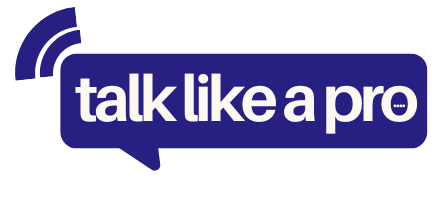Ever found yourself caught off guard when someone says, “I understand”? It can be one of those phrases that either makes you feel completely heard or like you’ve just been handed a generic response from a customer service script.
Why does it matter how you reply to this seemingly innocent statement? For starters, effective communication is what makes or breaks any conversation. Worry not, my friend, because I’ve got you covered. Below, we’ll dig into some of the best comebacks, responses, and witty retorts to have you navigating these interactions like a pro.
So, let’s not waste any more time and dive straight into the best ways to respond when someone says, “I understand.”
Empathetic Responses
“I appreciate that, thank you!”
When someone tells you they understand, sometimes they’re making a genuine attempt to connect. An empathetic reply acknowledges that effort and keeps the communication wholesome.
Example Replies
- “I appreciate that, thank you!”
- “Thanks for taking the time to really listen.”
- “It means a lot that you understand.”
Using empathetic responses can make the other person feel valued, creating a more fulfilling conversation for both parties.
Clarification Responses
“Can you tell me what you understand?”
If you’re not entirely convinced that they’ve got it, a little clarification can go a long way. This type of response helps ensure that both of you are on the same page.
Example Replies
- “Can you tell me what you understand?”
- “Could you explain it back to me?”
- “Just to be sure, what part do you understand?”
Clarification can prevent misunderstandings and ensures that the conversation continues to be productive.
Supportive Responses
“I’m glad we’re on the same page.”
Ah, the warm fuzzy feelings! This reply builds rapport and makes the person feel like you’re both in this together.
Example Replies
- “I’m glad we’re on the same page.”
- “It’s great that we understand each other.”
- “Feels good to be understood, thanks.”
Supportive responses make your conversational partner feel acknowledged and appreciated.
Humorous Responses
“Well, aren’t you a mind reader!”
Humor is one of the best ways to keep a conversation light and fun. If the context allows, feel free to throw in a witty comment.
Example Replies
- “Well, aren’t you a mind reader!”
- “Great minds think alike, huh?”
- “Did you steal that from my brain?”
Remember, humor can be a double-edged sword. Make sure it’s appropriate for the situation and won’t come off as sarcastic or dismissive.
Reflective Responses
“I feel the same way.”
Reflections are excellent for mirroring the other person’s sentiment. This reply subtly tells them you share a similar understanding or emotion.
Example Replies
- “I feel the same way.”
- “I’m glad we both see it this way.”
- “We’ve got a mutual understanding here.”
Reflective responses help build deeper connections by showing that you’re genuinely engaged in the conversation.
Encouraging Responses
“I’m glad you do; let’s dive deeper.”
Sometimes understanding is just the beginning. Encouraging responses push the conversation further and indicate that you’re interested in exploring the topic more.
Example Replies
- “I’m glad you do; let’s dive deeper.”
- “That’s great! Here’s what I’m thinking next.”
- “Cool! Let’s expand on that.”
Encouraging replies keep the conversation dynamic and ongoing, fostering a more enriching dialogue.
Sarcastic Responses
“My genius must be rubbing off on you.”
Alright, a little sarcasm never hurt anyone (when timed correctly). Sometimes you just want to keep things interesting.
Example Replies
- “My genius must be rubbing off on you.”
- “Oh, so you get it now? Finally!”
- “Glad my brilliance is so contagious.”
Be cautious with sarcasm. It can either land perfectly or fall flat, depending on your relationship with the person you’re talking to.
Appreciative Responses
“It feels good to be understood.”
Showing appreciation never goes out of style. It’s polite, respectful, and always well-received.
Example Replies
- “It feels good to be understood.”
- “Thank you for being so attentive.”
- “I appreciate your understanding.”
Appreciative replies can strengthen your relationship and show that you value the person’s effort to connect with you.
Confident Responses
“I knew you would.”
Confidence is key. Sometimes your reply needs to exude that “I expected nothing less” vibe.
Example Replies
- “I knew you would.”
- “Of course you do.”
- “That’s what I was hoping for.”
Confident responses can add a fun twist to your interactions, making you come off as assured and in control.
Disbelieving Responses
“Oh really?”
Not quite buying what they’re selling? A skeptical response can keep things interesting and prompt further clarification.
Example Replies
- “Oh really?”
- “You do?”
- “I’m not sure you do, but alright.”
Disbelieving replies can make the other person pause and reconsider, leading to a more in-depth discussion.
How to Reply to a Girl
When it comes to replying to a girl, context is everything. Whether you’re trying to bond over mutual understanding or just keeping things light, you want to make sure your responses hit the right note.
A good approach might be to combine empathy with a touch of humor. This shows that you can relate but also know how to keep things fun. If she says she understands, she’s probably looking to connect more deeply or make sure you feel heard.
Example Replies
- “That makes me feel so much better.”
- “You really get me, don’t you?”
- “Wow, it’s like you’re reading my mind!”
- “Thanks for understanding. Let’s grab coffee and chat more.”
- “You’re amazing for getting where I’m coming from.”
- “I appreciate that a lot.”
- “Great! Let’s figure this out together.”
- “Awesome! What’s your take on it?”
- “Phew, glad we’re both on the same page.”
- “Aww, thanks! That means a lot.”
How to Reply to a Guy
Now, when you’re replying to a guy, it’s all about balancing straightforwardness with a sprinkle of humor or appreciation. Men typically appreciate direct, clear communication. So, keep it simple, but don’t hesitate to show that you value the comprehension.
Example Replies
- “Thanks, man. That’s good to know.”
- “Awesome! Let’s move forward.”
- “Glad you get it. Here’s what I’m thinking.”
- “Cool, let’s tackle this together.”
- “Sweet, I knew you’d get it.”
- “Nice! So, what’s your next thought?”
- “That’s great. Let’s keep this momentum.”
- “Cool. Any insights you want to share?”
- “Thanks for understanding, buddy.”
- “Alright, onward and upward then!”
Understanding the Bigger Picture
Effective communication is not just about what you say but also about how you make the other person feel. When someone says “I understand,” they’re opening a door for deeper connection and clearer understanding. Your job? Walk through it with grace, humor, and empathy.
Crafting Your Perfect Reply
Take a moment to think about the vibe you want to create. Are you aiming for more empathy? Maybe some playful banter? Or perhaps a serious, reflective tone to match the gravity of the topic?
–
*Do you ever wonder how superheroes always seem to balance humor with sincerity? Think of your replies in those terms. Find the balance that works for your particular situation and run with it. After all, even Iron Man had his perfect quips ready.
The Role of Empathy in Replies
Empathy is your secret weapon. Why? Because it automatically makes the other person feel valued and heard. You’re not just mirroring words; you’re showing genuine understanding and concern.
“I understand” often seeks validation. They want to know you’re both on the same wavelength. Your empathetic response can help solidify that.
Keys to An Empathetic Reply
- Acknowledge the effort: “Thanks for taking the time to really listen.”
- Reciprocate the sentiment: “I’m glad we’re on the same page.”
- Add a personal touch: “It means a lot that you understand.”
Empathy can’t be faked, and the minute you try to turn it into a formula, people will see right through you. Be real, be you, and it will naturally shine through.
Humor: The Spice of Conversation
Humor can transform a mundane conversation into something memorable. However, timing is everything. Misplaced humor can backfire, but the right quip at the right time? That’s pure gold.
Imagine you’re in an intense meeting, and someone finally says, “I understand.” A humorous reply like, “Well, aren’t you a mind reader!” can lighten the mood and break the tension.
Quick Tips for Using Humor
- Read the room: Make sure your joke will land well.
- Know your audience: Understand their sense of humor first.
- Balance is key: Don’t overdo it; a little goes a long way.
Remember, even comedians rehearse. Think of your humorous replies as little rehearsed snippets you pull out at the perfect moment.
The Importance of Clarification
Let’s be real, sometimes people say “I understand” just to move the conversation along. This is where your clarifying responses come in. They can be a gentle nudge to ensure genuine comprehension.
“Can you tell me what you understand?” might feel a bit like a teacher quizzing a student, but it helps avoid future misunderstandings.
Steps for Clarification
- Ask for specifics: “Could you explain it back to me?”
- Be gentle: Don’t make it sound like a test.
- Value their input: Show appreciation for their effort.
Clarification can save you a lot of headaches down the road. Think of it as preventive maintenance for your conversations.
The Power of Encouragement
An encouraging response like, “I’m glad you do; let’s dive deeper,” can be incredibly empowering for the other person. It shows you value their understanding and are eager to explore more.
Encouraging Further Dialogue
- Express genuine interest: Show that you care about their perspective.
- Invite further discussion: Encourage them to share more.
- Show appreciation: Acknowledge their effort to understand.
Encouragement can turn a simple conversation into a collaborative discussion where both parties feel heard and valued.
Things To Keep In Mind
While it’s fun to have a quip or a thoughtful reply ready, remember that communication is a two-way street. The ultimate goal is to foster a genuine connection where both parties feel understood and respected.
Key Takeaways
- Be Genuine: Authenticity is your best friend.
- Read the Room: Always gauge the situation before replying.
- Use Empathy: This is your hidden superpower.
- Clarify When Necessary: Avoid misunderstandings.
- Balance Humor and Seriousness: Know when to joke and when to be sincere.
- Encourage Deeper Conversation: Don’t shy away from diving deeper.
Effective communication is a skill you can develop with practice, and soon enough, you’ll find yourself breezing through these interactions effortlessly. So next time someone says, “I understand,” you’ll know exactly how to respond with grace, wit, and a touch of humor.
Happy conversing!



